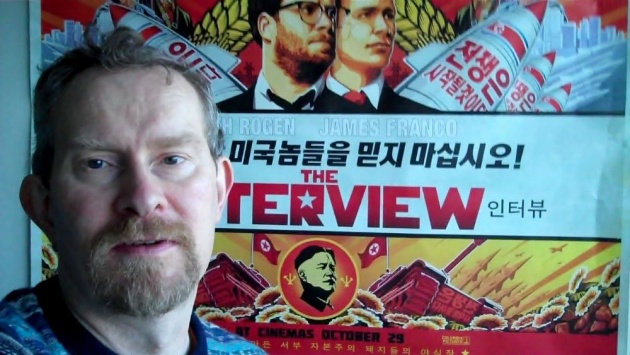
The latest video to go viral in the United Kingdom features Robert Downey Jr, star of Avengers: Age of Ultron, walking out of a rather testing interview with Channel Four journalist Krishnan Guru-Murthy. Downey Jr. is the only member of the Avengers cast to have his name above the title. He plays billionaire industrialist Tony Stark aka Iron Man in this franchise movie that has earned rave reviews and earned millions of dollars at the box office even before it opened in North America. Guru-Murthy was less interested in this rather than in Downey Jr’s ‘dark past’, his previous drug abuse and brushes with the law. What has this got to do with promoting an Avengers movie? Hey, it makes good television.
Now stars don’t actually like doing interviews, which is why they appear on shows like The Tonight Show starring Jimmy Fallon, where the host makes it kind of fun by inviting celebrities to race around the TV studio in miniature golf carts, wearing artificial arms, or inhale helium before speaking. (And we thought Japanese game shows were excessive?) However, Channel Four News is a serious show. Krishnan Guru-Murthy, who has interviewed everyone from politicians to housewives, is a serious journalist. I don’t recall him reporting from any war zones, but I’m assured he is one of a hundred people who can recite the lyrics of Katy Perry’s Fireworks without a prompter.
If you want to get the best out of an interviewee, you build up a rapport with them. ‘Man, you were great in that movie – you knocked it out of the park.’ ‘I love those pictures you posted on Instagram – what, they were leaked? Someone fire my researcher!’ But when you’re a serious journalist, you can’t open with a joke: ‘what does Avengers: Age of Ultron say about America refusing to sign up to the Arms Trade Treaty?’ Downey Jr is not likely to reply, ‘the United Nations – that’s an East Coast thing.’
After a few fairly uninteresting questions about Age of Ultron, Guru-Murthy went in for the kill, with a line of enquiry that focussed on Downey Jr potentially relapsing back to his past behaviour. To this, I ask: whatever happened to the Special Relationship? Channel Four makes shows like Britain’s Most Obese Benefits Cheat: you’d think they’d understand America. Downey Jr grew up around superficiality and drugs. He succumbed to the temptation of the Quick Fix, the Fast Score. Only when it took him towards the brink of self-destruction did he finally get help – and good for him. He got his poop together, turned it into a mountain, and said, ‘that’s not Ferrero Rocher’. In other words, he fulfilled the American Dream. He got a second chance and he took it.
I tried to imagine Krishnan Guru-Murthy interviewing Sylvia Plath in 1962 after her marriage with Ted Hughes had disintegrated but after Arial had become a literary smash. ‘You had electro-shock therapy in the 1950s. Do you think you’d need that again?’ Who puts these questions to the emotionally fragile?
There is a term for Guru-Murthy that is quite familiar to many of us: the workplace bully. Guru-Murthy took his position of trust and tried to exploit it for TV ratings, perhaps even for self-advancement. (Top Gear needs a new presenter.) Surely, celebrities who put themselves forward to push their product are fair game for any sort of questioning. Perhaps, if they are personally endorsing a product like face cream or incontinence pants. Not if they are just discussing a movie.
Guru-Murthy made a mistake. He thinks of Downey Jr as a person. No, Downey Jr, the star of Iron Man is a corporation, responsible for the employment of hundreds of people, directly and indirectly. He guarantees to his public a certain kind of entertainment manifested in his on-screen persona, which is kind of cool, a little bit flippant but not offensively so. The performances he gives these days are controlled; his characters say what they think, presenting the situation as a fait accompli. Nevertheless, it is a performance.
Guru-Murthy essentially attacked the Downey Jr brand, calling it a lie. He was attempting to damage Downey Jr’s market value. If you were a company, would you allow yourself to be defined by your past mistakes if you had subsequently embraced innovation?
Guru-Murthy also rather cynically doesn’t appear to believe in rehabilitation. I remember when Channel Four News was followed by a short five minute programme about a charity helping the disadvantaged. Guru-Murthy’s line of questioning suggests these charities are a waste of time – ‘do you think you have put those dark times behind you?’ Who can know?
Whatever personal damage Downey Jr might have endured, he came out of the interview well. He treated Guru-Murthy with respect. He didn’t lose his temper. He knew when he had to leave the hot house. If Guru-Murthy wants to make a career out of posing unanswerable questions, I would suggest that he trade journalism for philosophy.



